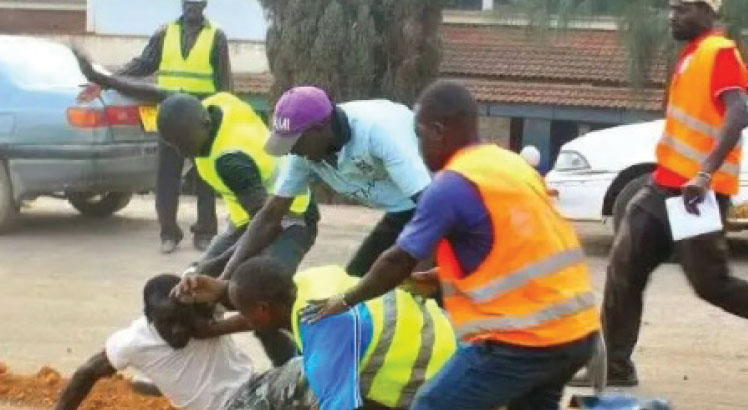Suspects are humans too
Bauleni, a wholesaler, was fast asleep when a deafening bang on his two-bedroom house jolted him up.
Irate community members were baying for his blood.
“They told me to surrender or they would burn my house. Unaware of the sin I had committed, I opened the door to face the crowd,” recalls the man accused of teaching children witchcraft.
In a wink, blows, whips and missiles left him in a pool of blood until police whisked him away.
Bauleni’s predicament is a tale shared by many other suspects who are ridiculed, condemned and treated as guilty before being tried by competent courts. Some have lost property to mob justice and others their lives without a chance to defend themselves. Yet others face degrading treatment even in police custody.

Instead of protecting suspects’ rights, some men and women in uniform have taken advantage of the vulnerability of the accused persons to torture them and force them to admit crimes they did not commit.
Mike Kapolo, 36, recalls how police kicked and whipped him to stop selling cattle at Phazi Cattle Market two months ago, a business that had sustained his family for the past five years.
He remembers the law enforcers beating him, to force him to admit stealing the cattle sold to a Zambian.
“I bought an ox from a certain villager, not knowing that it had been stolen. After reselling it, the rightful owner found it. The police nabbed me and didn’t believe my story. They beat me with small pestles to plead guilty,” says Kapolo.
Ignorant of the law, Kapolo instructed his wife to sell all their property and pay for a crime he did not commit.
“I had two choices: to pay for someone’s sins or die. I chose the former,” Kapolo states.
There are more Kapolos with painful stories to tell about police brutality.
Section 153 of the Constitution requires the police to protect public safety and human rights as perscribed by law.
Malawi is party to the UN general assembly resolution On December 14 1990 which requires all suspects and prisoners to be treated with respect and dignity.
However, many ordinary citizens are not aware of these rights.
National Police spokesperson Peter Kalaya, says: “Any form of torture is non-existent in our police service.
“If that happens, they must be treated as individual cases.”
He reckons police training includes human rights lesson, including humane ways to get information from suspects.
“In short, professionalism is instilled right from training,” explains Kalaya.
Kalaya challenges the citizen to report any cases of police brutality, arguing the heavy-handed cops “have no place in the new police”.
He states: “We encourage members public to report these vices to the officers in charge of police stations for redress.
“We are currently raising awareness through media and community policing so that more and more people report. They are also free to go anywhere, including non-governmental organisations or Anti-Corruption Bureau if not satisfied.”
Besides, the Police Act of 2010 creates the Independent Complaints Committee where civilians can report atrocities perpetrated by police officers for greater transparency and accountability.
To promote rights of suspects and offenders, National Initiative for Civic Education (Nice) Trust is sensitising the public to presume all suspects as innocent until found guilty by a competent court of law.
Glory Maulidi, district civic education officer in Blantyre, says every case of mob justice shows that most citizens are not aware that offenders’ have rights.
Says Maulidi: “It’s a pity that many people think offenders are condemned humans. This mindset must change.
“This is why we are providing awareness aimed at protecting both the victim band the offender.”
Nice also held coordination meetings of stakeholders in the justice delivery system to minimise miscarriage of justice likely to rile people to resort to mob justice.
Maulidi says: “The coordination meetings have helped us to unearth some of the bottlenecks in the justice delivery system. It has been observed that personal altitudes and procrastination in handling issues are main problems that disadvantage suspects and offenders.
“These meetings have helped to bring together various justice institutions to brainstorm solutions to the problems that affect the justice system. Consequently, members have made commitments to ensure that the bottlenecks are minimised to ensure that rights of those in conflict with the law are respected.” .





